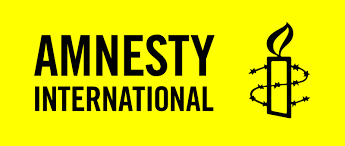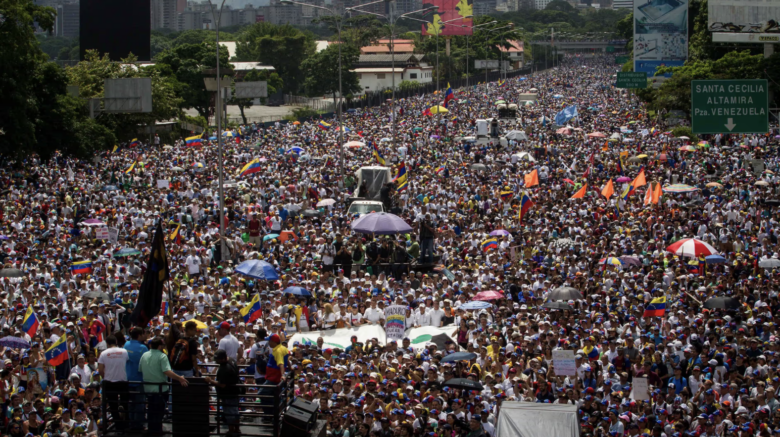AUTHOR: Antía Kornführer Romay
15,700 politically-motivated arbitrary detentions were documented in Venezuela between 2014 and 2023.
Around 300 individuals remain deprived of their liberty for political reasons.
The politically-motivated arbitrary detentions carried out by Nicolás Maduro’s government are part of a systematic policy of repression, targeting political oppositions or critics of the authorities. Amnesty International indicates that these systematic attacks on Venezuelans may amount to crimes against humanity.
Background
Throughout the past decade, Venezuelans continue suffering from a multifaceted humanitarian crisis, marked by increasing levels of scarcity and inequality within the nation, severely impacting the social, civil, political, economic, and cultural rights of civilians. The collapse of the healthcare system, food shortages, and inflation rates of over 360% in 2023, have significantly worsened living standards and led to a widespread impoverishment of the general population. Marginalised groups including women, Indigenous people, Afro-descendant people, children, individuals with disabilities, and those who are ill, bear the brunt of this impact disproportionately.
Since 2016, Venezuelans have continuously protested for changes in the government’s policies due to the severe social and economic crisis, particularly prompted by the deterioration of living standards and the collapse of essential services. Consequently, Venezuelan authorities, utilising their intelligence services and other security forces, and with their influence over the administrative and judicial system, have systematically suppressed protests and employed repression measures against those perceived to be critical of Nicolás Maduro’s government. As a result, Venezuelans also took to the streets to protest for their civil and political rights, including freedom of expression, peaceful assembly, political participation, and the defence of human rights. In turn, since 2019, authorities intensified their repression of dissenting voices and political opponents, quelling protests and shutting down news media outlets.
Targeted Repression: Politically-Motivated Arbitrary Detentions
Amnesty International has been documenting and reporting politically-motivated arbitrary detentions in Venezuela since 2014. Amnesty International considers these arbitrary detentions as tactics to suppress perceived threats to Nicolás Maduro’s government and policies. Therefore, the government not only targets typical political opposition figures, but also social actors like trade unionists, human rights defenders, ordinary individuals advocating for their rights, or those who are associated with targets of repression.
The government’s arbitrary detention practices include warrantless arrests, under the pretext of catching individuals in the act. Following arbitrary arrests, short periods of enforced disappearance have been observed. Such disappearances expose individuals to the risk of torture and are considered a crime under international law. During trials, detainees encounter restricted access to their defence rights, worsened by a lack of judicial independence stemming from public authorities’ interference in judicial decisions. Crimes are often prosecuted with broad discretion, and sentencing frequently reaches the legal maximum. While in detention, individuals are vulnerable to torture or other cruel, inhuman or degrading treatment.
Detainees and their families face significant disruption to their life plans. Examples of life plan disruptions resulting from arbitrary detentions include family separation, obstacles to family planning, and the impediment to engaging in human rights or social activism work. The InterAmerican Court of Human Rights asserts that disrupting life plans violates the right to life, thereby diminishing prospects for self-development.
Refugee Status: Ensuring International Protection for Venezuelans
The human rights crisis in Venezuela is also reflected in the fact that Venezuelans are among the largest forcibly displaced groups globally. From 2018 to August 2023, 7.7 Million Venezuelans fled the country, primarily settling in neighbouring countries in Latin America.
Many Venezuelans and their families may have well-founded fears of persecution based on their actual or perceived political opinions or associations, thus meeting the criteria outlined in the 1951 Geneva Convention on the Status of Refugees to be considered refugees.
Furthermore, Amnesty International recommends that countries guarantee and enhance the application of the refugee definition from the 1984 Cartagena Declaration on Refugees. According to the Declaration’s definition, all Venezuelans, whether through prima facie or group recognition, meet the criteria for refugee status due to the extensive risks in Venezuela, including threats to life, safety and freedom.
Recognising Venezuelan nationals as refugees ensures they receive crucial international protection, such as safeguarding them via the principle of non-refoulement. This principle prevents refugees’ expulsion or return to Venezuela, where their lives or freedom could be endangered.
Sources of the article:
Americas: Regularization and protection: International obligations for the protection of Venezuelan nationals
https://www.amnesty.org/en/documents/amr01/7130/2023/en/
Venezuela: International protection needs of Venezuelan nationals
https://www.amnesty.org/en/documents/amr53/7331/2023/en
Venezuela: Life detained: Politically-motivated arbitrary detentions continue in Venezuela
https://www.amnesty.org/en/documents/amr53/7077/2023/en/
VENEZUELA 2022 https://www.amnesty.org/en/location/americas/south-america/venezuela/
Source of the picture:
https://www.theguardian.com/world/2017/may/20/venezuela-50th-day-of-protests-brings-cent ral-caracas-to-a-standstill

